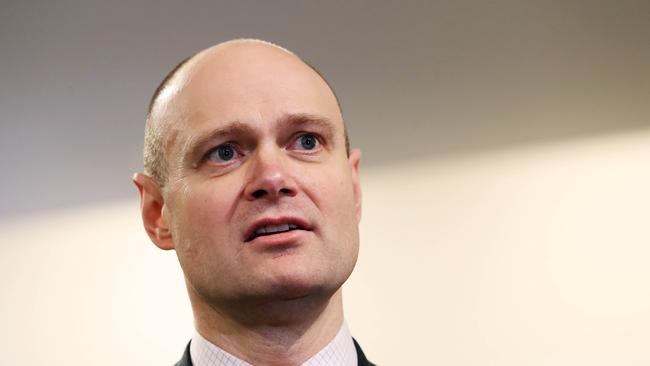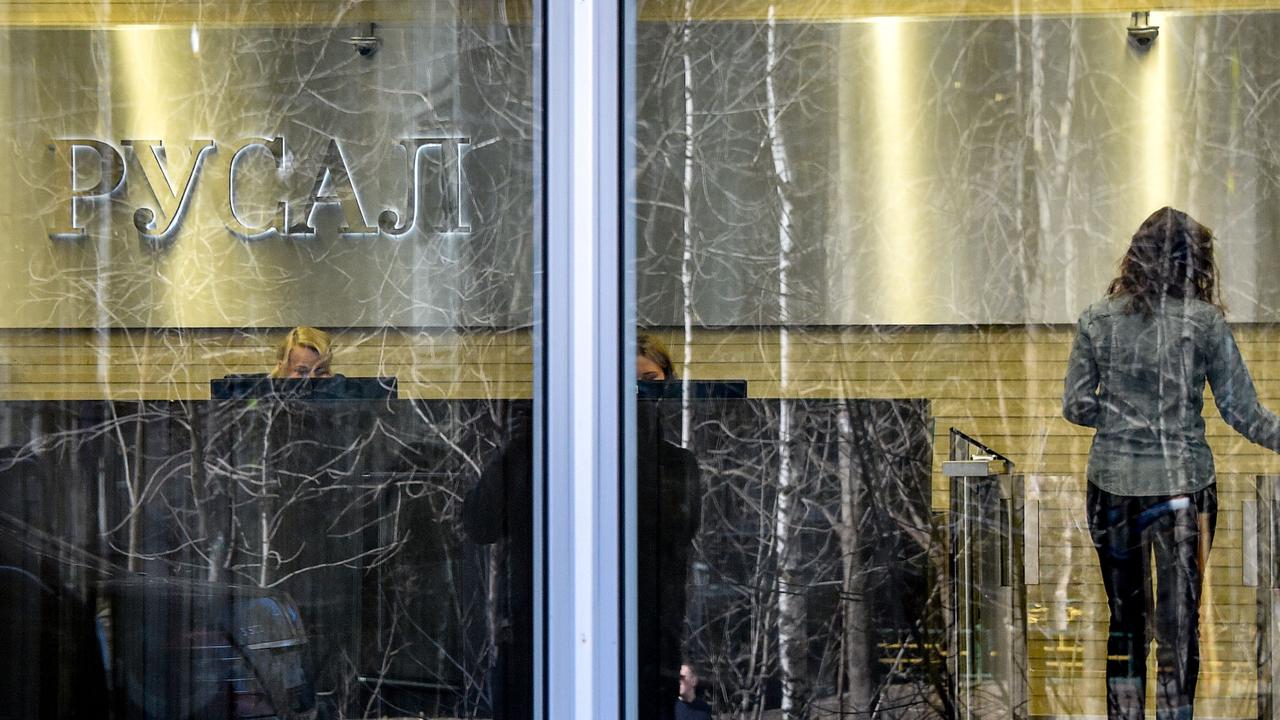CEO’s removal sets Myer clock ticking
Instead of being a circuit-breaker, Umbers’ exit actually signals that it may be too late for a turnaround.

Conventionally, the resignation of the chief executive of a floundering company would buy the company, and its board time. Unhappily for the Myer board, the forced departure of Richard Umbers probably reduces the amount of breathing space they will be afforded.
While chairman — now executive chairman — Garry Hounsell says Umbers wasn’t moving fast enough in response to Myer’s rapidly deteriorating performance and that he would now act with a greater sense of urgency, the accelerating rate of decline Myer is experiencing, the lack of balance sheet flexibility and the hot breath of a fired-up Solomon Lew means time is one asset Myer doesn’t have.
The rate at which Myer’s sales base and earnings have collapsed is disconcerting. To the end of November they were down 2.3 per cent. In the first two weeks of December they were five per cent lower. Last week Myer disclosed that sales in January were down 6.5 per cent and foreshadowed a steep decline in first half earnings.
Ominously, it also said it was undertaking an impairment assessment of the carrying value of its assets. With net assets of just over $1 billion and goodwill of just under $1bn the potential for a major writedown that decimates its balance sheet is obvious and real. Only last month the South African parent of Myer’s department store rival, David Jones, took a $712 million impairment charge.
Myer’s market capitalisation — the market’s guide to Myer’s net worth — is, incidentally, less than $445m.
It is the weakness of that balance sheet, reliant on goodwill and brand values, that restricts the group’s ability to make the structural changes it needs to be stabilised.
It has far too many underperforming stores with lengthy and expensive lease arrangements and landlords that would fiercely resist renegotiation of the leases by an anchor tenant, or their early surrender, unless they were paid out in full.
Hounsell is right when he says efforts needed to try to arrest Myer’s decline need greater urgency, but the rate at which Myer is imploding, its limited financial flexibility and the nature of the structural changes required to avoid an unpalatable outcome for one of the country’s iconic businesses may mean it is too late, and Myer doesn’t have the firepower, to manage a turnaround — if one could be achieved — within the time frame the board will have available.
Instead of being a circuit-breaker, the departure of Umbers (which followed the earlier departures of his deputy CEO and his former chief financial officer) probably shortens the timelines for Myer.
Myer shareholders, and creditors, are going to be unsettled by the prospect of a non-retailer trying to manage the business until someone better credentialed can be found and convinced to take on the challenge of trying to arrest the decline, assuming there is someone who would accept the role in the current circumstances.
Those circumstances, of course, include the presence of Solomon Lew and his Premier Investments, which owns 10.8 per cent of Myer.
Premier has foreshadowed the calling of an extraordinary general meeting of shareholders to boot out the entire board and its replacement by three Premier nominees and a majority of independents agreed with other major shareholders.
Hounsell has rejected Premier’s request for board representation because of Premier’s role as a Myer competitor and Lew’s status as its second-largest supplier.
While that might represent conventional governance best-practice, having Lew stalking the group even as its fortunes and share price have collapsed is another destabilising factor that the departure of Umbers will probably exacerbate.
If Myer shareholders were agitated about the performance and their shares previously, they will probably be even more inclined to look to Lew to try to salvage some value — and keep Myer afloat — after today’s announcement.
Even Myer’s second-largest shareholder, Investors Mutual, which has steadfastly supported the incumbent board in the face of Lew’s assault, must be having some significant misgivings as it contemplates the near term outlook for the business, its implications for Myer’s stability and its own responsibility for whatever the outcome might be for shareholders and the business.
Lew, regardless of whether he could arrest the decline, would be given the benefit of doubt by the market and creditors — and that precious breathing space the business needs if it is to have a chance of being stabilised — if he were allowed some influence within the boardroom.
The worst-case outcome for Myer, its shareholders, employees, suppliers and landlords would be if the imminent writedown of goodwill and/or collapse in its profitability were to trigger a default on its loan covenants. It is doubtful, almost inconceivable, that the market would support an equity raising.
An administration, in that worst-case scenario, would actually benefit the business — it could walk away from onerous lease arrangements and remerge with a far smaller core of its best-performing stores — but, as one of its largest creditors, could also provide Lew with a different type of leverage to achieve a greater level of ownership and control than he has sought to date.
Hounsell said today that Myer wasn’t at risk of collapsing but it was only a few months ago that Myer was confident it was on the right track having reset its strategy (and lowered the benchmarks for success in the process).
It is difficult to assess Umbers’ performance — or the extent to which the Myer board and management, or Premier, have the capacity to turn the business around — given the extent to which the retail landscape has changed since he was appointed CEO three years ago.
Locally and globally retailers — but most particularly department store retailers — are being destabilised by accelerating structural changes in the sector, perhaps overlaid by some additional cyclical influences.
They are finding it difficult to adapt quickly enough in the face of disruption from digital competitors, the increased consumer focus on value and physical and digital competition from the global brands that they once stocked exclusively.
Myer’s unwieldy and expensive portfolio of stores — the legacy of a fairly aggressive pursuit after its period of private equity ownership of the old retail strategy of continually adding sales volumes and scale to fractionalise fixed costs — and its inability to shed the loss-makers at the rate required to flow its decline has made the task even harder and perhaps impossible within the timelines available to the current board and what’s left of its management.





